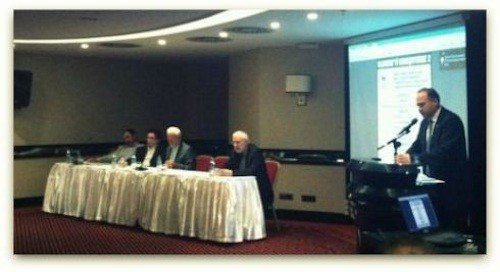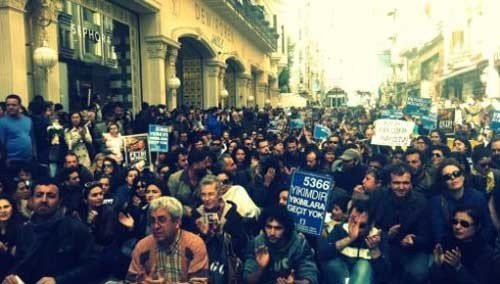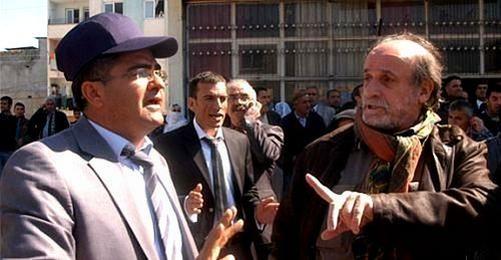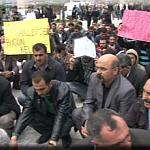SAPANCA MEETING
Hope for Detained MPs?

There might be a light at the end of the tunnel of the crisis on the detained newly elected Members of Parliament. The Ministry of Justice convened a meeting with ministry officials, lawyers, academics and members of the Court of Appeals to discuss Article 100 of the Criminal Procedure Law (CMK). This is the very article that constitutes the biggest obstacle before the release of the deputies. The meeting was held in Sapanca east of Istanbul.
Article 100 CMK on "Grounds for Arrest with a Warrant" regulates arrest in cases of various offences such as "Crimes against the Constitutional order and crimes against the functioning of this system" and "crimes against the security of the state".
The situation of the detained Members of Parliament elected in the general elections on 12 June was discussed in detail. At the end of the talks, the participants agreed that Article 100 CMK - currently constituting the biggest obstacle before the release of the detained deputies - should be amended.
As reported by the Sabah nation-wide daily, the meeting was attended by the General Director of Laws, Yüksel Hız, the Deputy Chief of the General Directory, Yüksel Erdoğan, criminal law experts Prof. İzzet Özgenç, Prof. Cumhur Şahin, Prof. Bahri Öztürk, Prof. Veli Özer Özbek, Prof. Mahmut Koca, Assoc. Prof. Recep Gülşen, Ass. Prof. İlhan Üzülmez and Ass. Prof. Ali İhsan Erdağ. The Court of Appeals sent three representatives.
KCK, Ergenekon and Sledgehammer
One of the most common reasons for the arrests is the suspicion "that the suspects are going to flee" and "that the suspect is going to attempt to destroy, hide or change evidence". Since these reasons are open to misuse, they have to be based on concrete evidence.
The trials related to Ergenekon and Sledgehammer are dealing with alleged coup plans while the KCK case is concerned with the partly militant Union of Kurdistan Communities. The courts handling these three major trials had rejected the release of the elected deputies because the "evidence on the specifications and on the properties of crime has not been collected yet" and by reason of the "risk of flight".
Two proposals emerged from the meeting in Sapanca:
* Article 100 CMK has to be reviewed.
*Offences listed under paragraph 3 of Article 100 CMK must not be accounted for reasons of arrest on their own. It should not be possible to issue arrest warrants upon the reasons written. The initiative given to judges in this aspect should be restricted by law.
In fact, this meeting would have also been held without the "deputy crisis". The reports on the 30 judicial topics reviewed will be presented to the Ministry of Justice. (IC/ŞA/VK)
ULUDERE MASSACRE
4 Questions Not Answered for 120 Days

Students Forced to Paid Military Service

EMEK MOVIE THEATER PROTEST
"We Do Not Watch This Movie"

NEWROZ 2012
Newroz Came with Tear Gas and Police Violence

WOMEN QUOTA
Journalists Record: 147 Men, 27 Women








